

Quentin Bauer
gamer level 3
1094 xp
1094 xp
followers
25
25
Use my invite URL to register (this will give me kudos)
https://boardgaming.com/register/?invited_by=qbauer
profile badges
...



recent achievements

Private eye
Follow a total of 10 games
Follow a total of 10 games

Copper Supporter
Show your support for boardgaming.com by purchasing a total of 5 Gems
Show your support for boardgaming.com by purchasing a total of 5 Gems

Novice Grader
Grade 20 more reviews or tips by clicking "Yes" or "No" in response to the question "Was this helpful?"
Grade 20 more reviews or tips by clicking "Yes" or "No" in response to the question "Was this helpful?"

Explorer - Level 1
Earn Explorer XP to level up by completing Explorer Quests
Earn Explorer XP to level up by completing Explorer Quests
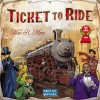
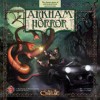
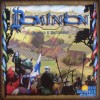

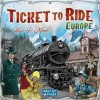

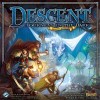


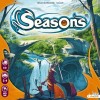
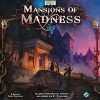
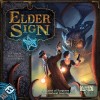
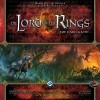

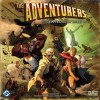
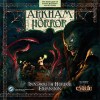
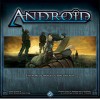
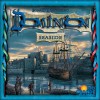




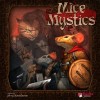
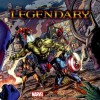










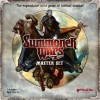

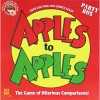

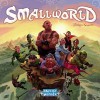

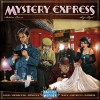
Seasons
Seasons is absolutely beautifully crafted. The theme is very cool. And the mechanics are eventually fun, but take about a half hour of play to really understand. It is difficult to review this game, because I’ve played it once, and this is a game that demands many rounds of play before deciding on a final judgment. The good part of this is that the game is robust and has quite a bit of replay value. As beginner mages, we only used a third of the starter deck. There is an advanced deck that we didn’t even open. Of that first small deck in our game, I ended up learning how to use 4-5 cards, and even then I can see that mastery of a card depends on seeing its interaction with the myriad other cards available in the game.
In Seasons you are a wizard that competes against the other players in a three-year competition of magic. As seasons progress in the game, it becomes easier or more difficult to draw seasonally themed “energy” from the environment. You can only summon cards based on your energy reserves. As an example, in winter time, I may have an extreme difficulty drawing fire energy (which is abundant during the summer), and without fire energy there is no way I can summon my Amulet of Fire card. But I may have a ton of air energy in my reserves, but unfortunately didn’t put Amulet of Air in my deck, so I can’t summon anything yet this season. There is a lot of strategy in how you build your deck, and I’m looking forward to playing with this in future games.
The things I like about this game: the replay value. This will get a lot of replay time because it looks like we could play this a hundred times, and without even opening the advance deck, and still be learning how to use the magic combinations (so far I I have learned the strategies of three cards: Figrim the Avaricious, Amulet of Fire and the Grimoire). Secondly, my wife liked this game and its themes. Third: the game is beautiful; I’ve never seen a game so well art directed. Lastly, I really like the mechanics (once I finally got it).
The big problem with the game: I would have tweaked some of the definitions of aspects of the game, and been more clear about the goals in the game. They could have simplified a lot of the rules by just saying that your ultimate goal is to convert magic into crystals (or gems), because the person who has the most crystals by the end of the game wins (after adding in a few modifiers here or there). Phrases like “advancing the summoning track” is used instead of “mana” or “magic pool”, and “advancing on the crystal track” instead of “earning crystals”; many of the ideas could have been rephrased into an easier-to-understand language that didn’t feel like these wizards enjoy speaking in their version of lawyer-speak. If I’m trying to cast magic spells by using the energy in the seasons, and then converting this into gems, then say this. Don’t create a confusing language. Some of the graphic design, as beautiful as it was, could have been clearer. The pips on summoning ability track (your mana pool) and your crystal track (the amount of crystals you earn) looked a lot alike to me, and I got the two confused in the rules. I would have made the pips on the crystal track look like gems (or better yet had a bag of gems that I could throw into a glass jar to get the feel that I was actually earning something tangible, instead of moving a ****** wood block along a meaningless board). These small fixes in the esoteric language of the game and rules would have really made the theme more clear.
I would say that this is nearly a ten for me, but that some confusion in the initial play puts it down a bit until the full verdict is in. Maybe I’ll be back after another fifty plays and give a better more concise review. But for a game that I enjoyed and that my wife enjoyed (a difficult thing to find), I’ll give this one a solid nine.